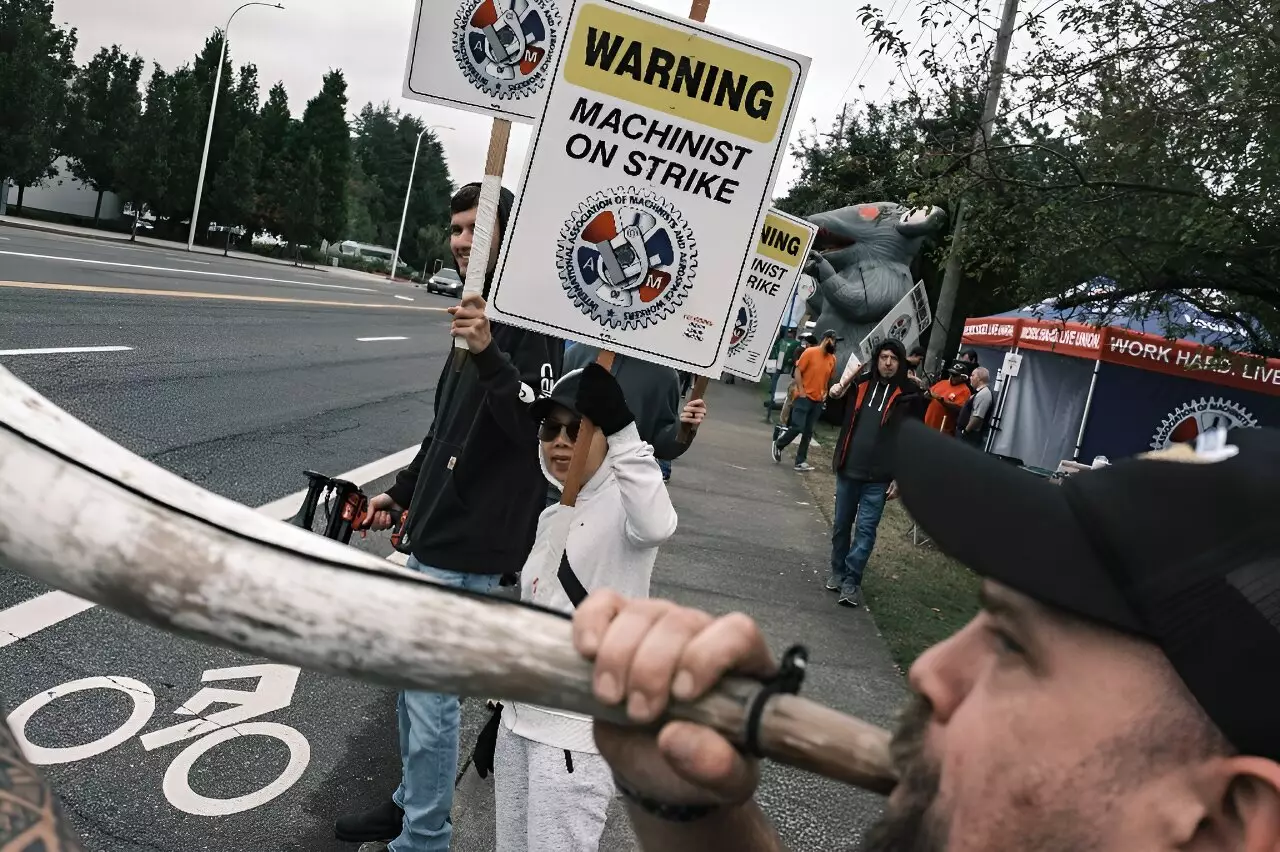In a significant labor dispute, approximately 33,000 workers affiliated with the International Association of Machinists and Aerospace Workers (IAM) have initiated a strike against Boeing, centered in the Pacific Northwest. This collective action commenced on September 13 after the workforce overwhelmingly rejected a contract proposal. The strike has led to the suspension of operations in critical assembly plants, particularly those manufacturing the 737 MAX and 777 aircraft models, underpinning the immense impact of this labor movement on the aviation giant’s production capabilities.
As of Friday, negotiations between the IAM and Boeing have reportedly collapsed, with no future meeting dates established. The IAM expressed its readiness to resume discussions, either directly with Boeing or through mediation, asserting their commitment to reaching a fair agreement. Boeing, in contrast, conveyed its willingness to engage once more with the union, emphasizing its intent to “reset” the relationship with employees and negotiate in what they term as “good faith.” This contrasting outlook signifies a critical juncture where both parties remain entrenched in their positions, illustrating the challenges to achieving a middle ground.
Boeing has attempted to placate the striking workers by putting forth what it has described as its “best and final offer.” This proposal includes a 30 percent wage increase and the reinstatement of an annual bonus. However, the hastily imposed deadline for acceptance has received significant pushback from the IAM, branding the offer insufficient. The union’s insistence on better terms reflects a growing dissatisfaction among employees, who are not only seeking improved financial compensation but also more robust benefits and job security.
A pivotal sticking point in the negotiations has been the pension plan, which has emerged as a linchpin in discussions. The IAM highlighted the company’s refusal to restore the defined benefit plan, a decision that resonates deeply with many workers concerned about their long-term financial security. Other issues, such as demands for accelerated wage progression and enhanced paid time off, remain unresolved. The IAM’s critique of Boeing’s engagement—or perceived lack thereof—on these issues underscores the frustrations that have fueled the strike.
The striking workers’ defiance in the face of Boeing’s proposals signals a broader discontent that transcends mere financial negotiations. As each party maintains strong stances on pivotal issues, the question remains: can an amicable resolution be reached? The upcoming days and weeks are crucial, with the aviation sector closely monitoring developments. Worker solidarity in this context speaks volumes about their collective resolve to advocate for more equitable labor conditions, highlighting that the stakes extend beyond individual compensation and touch upon core principles of labor rights and dignity in the workplace.

